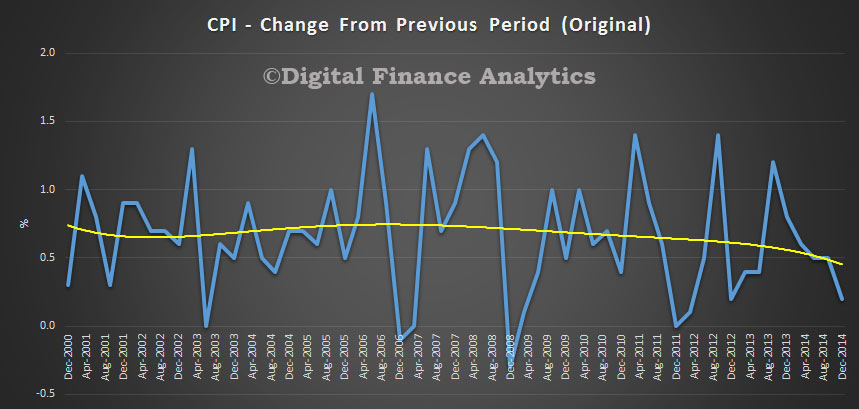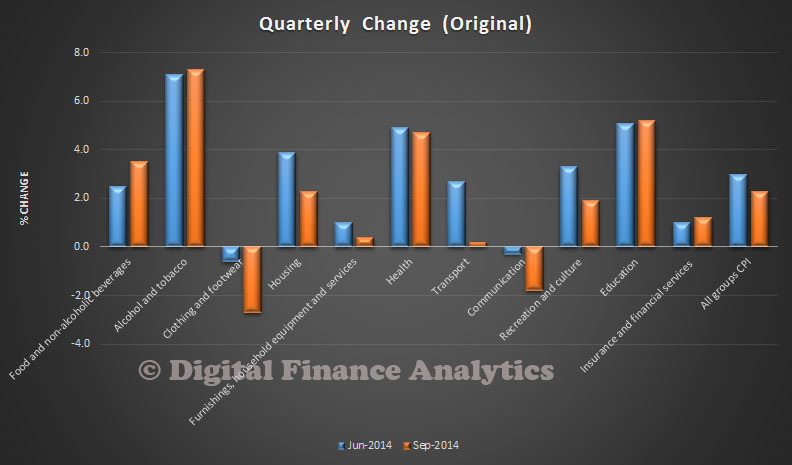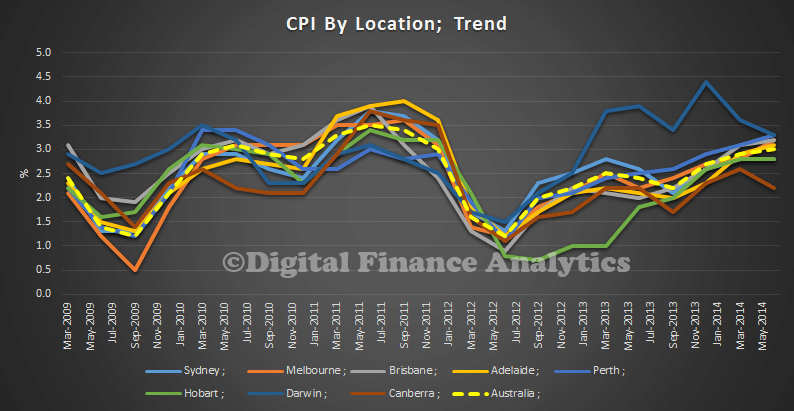According to the ABS, the Consumer Price Index (CPI) rose 0.2% in the December quarter 2014, following a rise of 0.5% in the September quarter 2014. The CPI is trending down at the moment.
The most significant price rises this quarter were for domestic holiday travel and accommodation (+5.8%), tobacco (+4.8%) and new dwelling purchase by owner-occupiers (+1.1%), These rises were partially offset by a fall in automotive fuel (–6.8%). Global oil markets continue to experience oversupply, which resulted in continued falls in oil prices. In Australia, average unleaded petrol prices reached a low of $1.17 per litre in December 2014, the lowest recorded average daily price since February 2009.
The CPI rose 1.7% through the year to the December quarter 2014, following a rise of 2.3% through the year to the September quarter 2014.
The fall in CPI may stimulate calls for the RBA to cut rates, but given that oil price falls already acts as a quasi rate cut, DFA believes a further cut in official rates is not required. The lower dollar and stable unemployment data also suggests there is no need for cuts, indeed, the next movement should be upwards.



